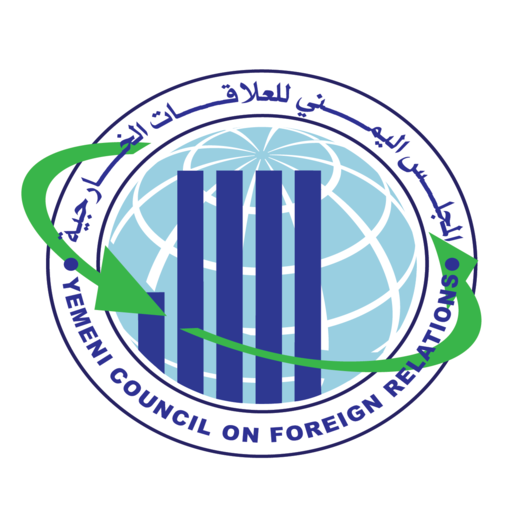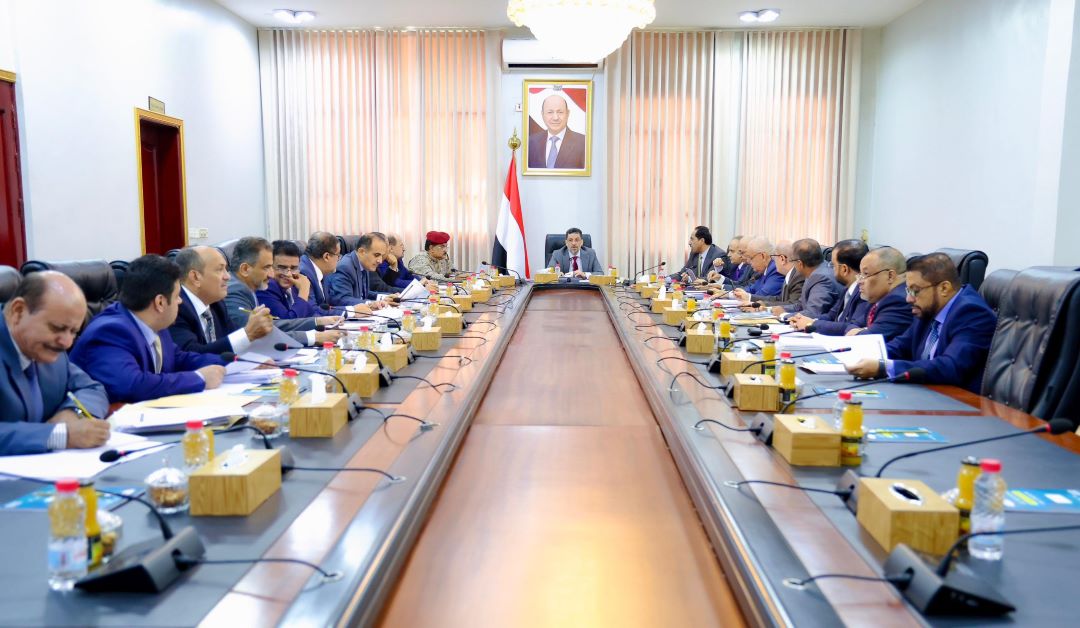Source: Prime Minister’s Office
The Council of Ministers, in its meeting on Thursday in the interim capital, Aden, chaired by Prime Minister Dr. Ahmed Awad bin Mubarak, discussed the executive measures to achieve balance in the exchange rate of the national currency and to curb its unjustified decline. This includes deterring speculative activities that fall within the economic warfare directed against the country, and the complementary responsibilities of the state and government in this regard.
The Council emphasized the accountability of the ministries and concerned authorities in executing the directives issued by His Excellency the President of the Presidential Leadership Council, based on meetings of the Supreme Security Committee and the Committee for Managing Economic and Humanitarian Crises. This includes enforcing the monetary policies of the Central Bank of Yemen, curbing currency speculators, strict oversight on service and essential commodity prices, and enhancing the efficiency of public financial management.
The Council of Ministers reviewed the main files that top the government’s work and priorities in political, military, security, service, and economic aspects, and the efforts being made to address them, along with the necessary responses to counter the plans of the terrorist Houthi militia and organizations colluding with them.
At the beginning of the meeting, the Prime Minister, His Excellency Dr. Ahmed Awad bin Mubarak, outlined the discussions held regarding economic conditions, including the foreign exchange market, monetary policy, and the state’s and government’s approach to dealing with these issues responsibly and comprehensively. He pointed to policies and measures to end currency distortions, regulate exchange rates, improve the state’s access to its public resources, rationalize expenditures, ensure compliance with mandatory commitments, and implement financial and administrative reforms, and the government’s five priorities.
Dr. bin Mubarak highlighted that the government’s primary concern is improving living conditions and alleviating the existing hardships faced by citizens, which is the fundamental criterion for any initiative or task. He provided his observations based on field visits to ministries and government entities, and the efforts they are exerting to implement priorities, reforms, and their responsibilities optimally under these exceptional circumstances.
The Prime Minister also addressed ongoing communications with Yemen’s partners among countries and donor organizations to garner support for government reforms and assist in facing economic challenges and their humanitarian repercussions, aggravated by Houthi terrorist attacks on oil facilities and international shipping lanes. He acknowledged the fraternal role of allies in the Coalition to Support Legitimacy, led by the Kingdom of Saudi Arabia and the United Arab Emirates, in supporting the government and the aspirations of the Yemeni people to complete the restoration of the state and end the Houthi coup.
The Council listened to a report presented by the Minister of Defense on the latest developments in the military and field situations, and the continued military mobilization by the terrorist Houthi militias on several fronts, coinciding with their escalation against international navigation and targeting commercial ships. This underscored the role of the Supreme Security Committee, as per directives from His Excellency the President of the Presidential Leadership Council, to support and assist the Central Bank in curbing currency speculators, combating terrorism and organized crime, and enhancing security and stability.
The Minister of Foreign Affairs and Expatriate Affairs, Dr. Shaye Zindani, presented a report on political developments and meetings held with diplomatic missions in Aden, as well as the first visit by the Secretary-General of the International Maritime Organization to Yemen and its outcomes. He noted the continued international unity in supporting the Yemeni government and its efforts in implementing reforms and easing the ongoing humanitarian suffering.
The Council was briefed on a report from the Minister of Public Health and Population regarding the localization of the pharmaceutical and medical supplies industry. A committee was formed, chaired by the Minister of Finance with members from the Ministries of Health, Legal Affairs, Industry and Trade, Water and Environment, the General Secretariat of the Council of Ministers, the executive director of the Supreme Board of Drugs and Medical Appliances, and the head of the General Investment Authority. This committee is tasked with preparing a list of raw materials, auxiliaries, and packaging imported for the pharmaceutical industry and studying their financial and economic impact with the aim of including these items as essentials for pharmaceutical products, treating them with import exemptions and customs duties akin to finished pharmaceuticals, to ensure the factories have access to raw materials and to streamline supply and production processes.
The committee is also responsible for designing a national strategic plan for localizing the pharmaceutical and medical supplies industry, aiming to attract and encourage national capital investment and expansion to meet local market needs, reduce import dependency, and define the responsibilities of relevant government ministries and agencies required for the implementation of the national strategic plan.
The committee was mandated to submit the results of their findings regarding the list of materials used in the pharmaceutical industry to the Council within one month from the date of the meeting.
The Council commended the efforts of the Supreme Board of Drugs in promoting local pharmaceutical industries for their significance in providing affordable medicine for citizens, ensuring their availability in both normal and emergency health situations, and enhancing resilience during crises. They also noted the ongoing work to complete the construction phase of the quality control lab for pharmaceuticals, which the board is implementing as a reference laboratory.
The Council of Ministers approved the World Trade Organization’s Trade Facilitation Agreement, as per the memorandum submitted by the Ministry of Industry and Trade, and directed the Ministers of Industry and Trade and Legal Affairs to complete the necessary legal procedures.
A committee was formed, chaired by the Minister of Local Administration, with members from the Ministries of Finance, Legal Affairs, Endowments and Guidance, Social Affairs, Justice, and the Minister of State Governor of Aden, to review the distribution of Zakat expenditures and report back to the Council for discussion and necessary action.
The Council reiterated its condemnation of the ongoing crimes and violations by the Israeli occupation against the Palestinian and Lebanese peoples, reaffirming Yemen’s stance on the necessity to stop this aggression. It deplored the Israeli Knesset’s enactment of legislation prohibiting the operations of the United Nations Relief and Works Agency for Palestine Refugees (UNRWA), which hampers its ability to provide support to Palestinian citizens in the occupied Palestinian territories.
Additionally, the Council welcomed the invitation by the brotherly Kingdom of Saudi Arabia to hold a joint Arab-Islamic follow-up summit to discuss the continued Israeli aggression on Palestinian and Lebanese territories and the current developments in the region.

